News
Korakulam under threat from squatters
Illegal encroachments or land-grabs are holding Mannar island in their vicious grip, with more and more people putting up huts and other structures in vulnerable and sensitive areas.
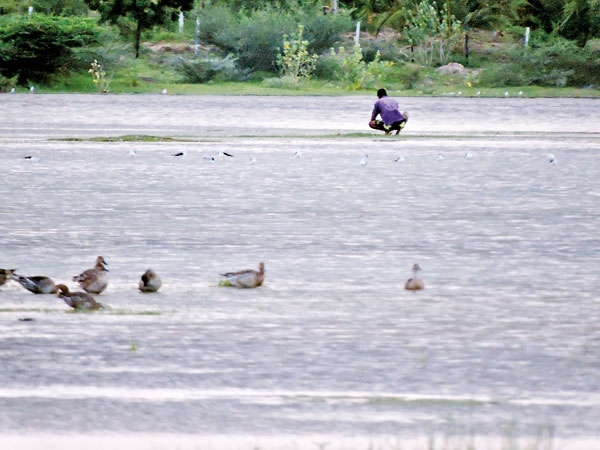
An intruder setting a snare to capture birds in Korakulam. Pix by Dr. Sampath Seneviratne
Of particular concern is the ‘triangle’ of land, the only man-made freshwater wewa (tank) on Mannar island, the Sunday Times learns, as howls of protests are echoing and re-echoing among conservationists to save this area right now before it is too late.
The Wildlife and Nature Protection Society (WNPS) has demanded that the authorities should remove all illegal settlements and clear the unauthorised fences and structures immediately.
This habitat on Mannar island is “unique” for migratory birds, stressed Ornithologist and Evolutionary Biologist Dr. Sampath Seneviratne who is a Senior Lecturer in Zoology at the Faculty of Science, University of Colombo.
Dr. Seneviratne who does a ‘walkabout’ all over Mannar island frequently is quick to point out that after the war ended this area has become a utopia or economic El Dorado (a place of fabulous wealth or opportunity) where people seem to be squatting on state land at will.
“There is deforestation and fencing of the areas known as Korakulam and Tharapuram with impunity,” he said, adding that Korakulam, the freshwater wewa is very large and shallow. It is the wew-pitiya (glade) – having as its northern border the Mannar-Talaimannar Highway and southern border the Mannar-Talaimannar Railway – which is under severe threat. It is also adjoining the precious Vankalai Sanctuary.
There is large-scale encroachment on the wew-pitiya and people have cleared the scrubland, bulldozing down the green growth and put up a timber mill, a block-gal shop and several huts. This scrubland is essential to prevent pollutants and silt seeping into Korakulam, Dr. Seneviratne says.
He has not only petitioned the Central Environmental Authority (CEA) but also the Forest Department urging that prompt action be taken to stop the destruction of this critical freshwater body.
The Sunday Times understands that Dr. Seneviratne has research data to prove that it is a very important area for migratory birds. It is the breeding site of the ‘Critically Endangered’ Spot-billed Duck, Little Tern and Kentish Plover and feeding grounds of migratory birds such as Greater Flamingo, Great Black-headed Gull Glossy Ibis and more. This is also the only freshwater body for Mannar’s horses and most of Mannar’s donkeys, while ‘Endangered’ mammals such as the Fishing Cat and the Grey Slender Loris also haunt this area.
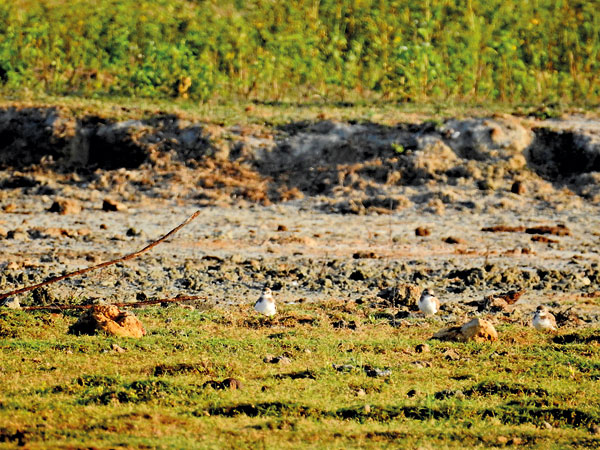
A photograph taken last month (February) which shows the disturbances caused by humans in bird habitat
Expressing “serious concern” about the illegal and haphazard land grabbing in and around Mannar, WNPS President Sriyan de Silva Wijeyeratne told the Sunday Times that many seemingly dry land blocks become seasonal hotspots for birds and Mannar is currently the most “vital region” for migrant populations in Sri Lanka. It is an exceptionally valuable region with rich biodiversity which, due to the conflict, was spared the inevitable destruction caused by commercialisation, increased population settlement and urbanisation.
“Sri Lankans thus had a unique opportunity to plan out our development in these areas and find a better balance between nature, wildlife and human needs. Unfortunately, greed, politically-driven agendas and short-term benefits seem to dominate all actions being taken,” he pointed out, explaining that demarcated reservations, Protected Area boundaries and even the coast and beaches are being illegally occupied and annexed at an aggressive rate. There seems to be no respect for the rule of law and little will to uphold the same.
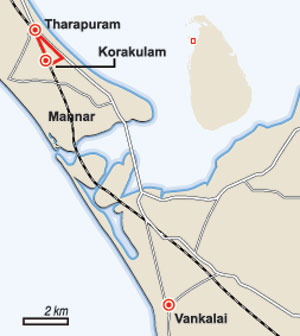 Focusing on the freshwater wewa, Mr. de Silva Wijeyeratne said that the Korakulam roadside area is currently one of the “worst affected”.
Focusing on the freshwater wewa, Mr. de Silva Wijeyeratne said that the Korakulam roadside area is currently one of the “worst affected”.
According to Dr. Seneviratne in Korakulam which is regrettably facing rapid destruction he had counted more than 8,000 ducks just last month.
While urging the authorities to remove all the illegal settlements and clear the unauthorised fences and structures immediately, the WNPS has also called on all civic conscious Sri Lankans to add pressure to stop the destruction.
“We are convinced that Mannar has tremendous nature-based economic potential which can bring much prosperity to the people of the region, when approached with a long-term vision and a sustainable balance. We remain optimistic that this will become the chosen and preferred path for all. Sri Lankans simply cannot afford to make the same mistakes repeatedly in every single region of our country,” adds Mr. de Silva Wijeyeratne.
Other sources pointed out that even the railway and highway would have their own mandatory reservations where there should be no squatters.
Usually, the minimum reservation which runs parallel to a railtrack is 20 metres each (it was 1 chain during British times) from the centre of the track. Encroachers are also occupying these areas, it is learnt.
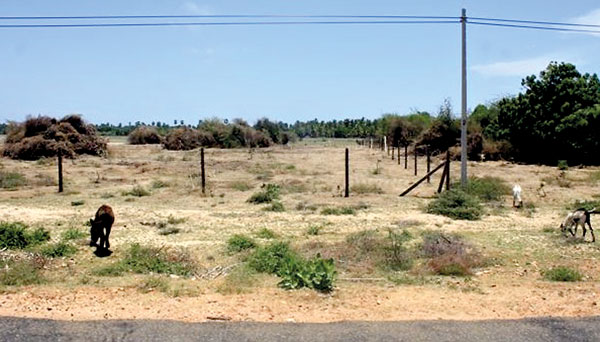
Fences erected on state land
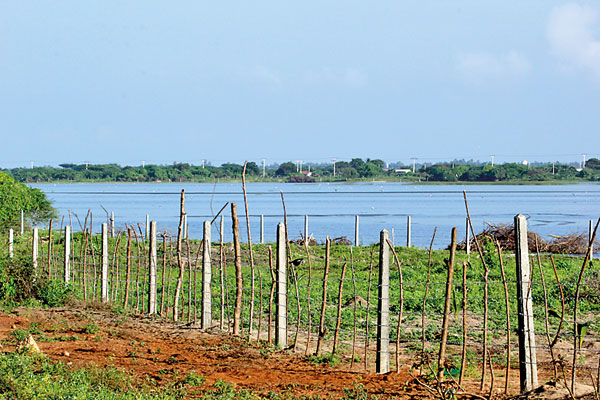
Fences put up very close to the waters’ edge at Korakulam
| Officials await court decision When asked about the illegal encroachments in Korakulam, the Divisional Secretary of Mannar town, K. Sivasampu said that action has been filed in court to clear out the earlier encroachments.Conceding that meanwhile some new encroachments have also taken place, Ms. Sivasampu said: “We are awaiting the court’s decision to take the relevant measures.” | |

